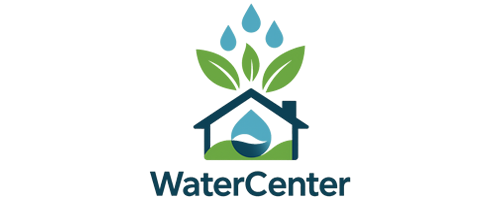Career Transition to Tech: My Story and Advice for Those Looking to Make the Change
Career Transition to Tech: My Story and Advice for Those Looking to Make the Change. I never thought that one day I would be here, telling how I traded my old life for a new one, full of codes and technologyThink of me as a frog who decided to jump from a still pond into a pool full of flashing LEDs and talking computers. In this article, I'll share some tips, difficulties that I faced, and even give some successful recipes for you who want to do the same. So, adjust your belt, because the adventure in technology is about to begin!
My Journey in Career Transition to Tech
How I Decided to Change Professions
Ah, the big decision! One day, I was sitting on my couch, eating popcorn and watching a technology documentary. Then, a thought struck me: "What if I could do that too?" It was like a flash in the pan! I realized I was tired of my routine and wanted something new. The idea of program It seemed as exciting as a roller coaster ride!
What Motivated Me to Enter the World of Technology
What motivated me? Well, besides the desire to change, I wanted challenges! Technology is like a maze. Sometimes you feel lost, but when you find the way out, it's a victory! And of course, I wanted a job that paid better. My life as a freelancer in digital media was leaving me in the red.
The Importance of Having a Plan
A plan is like a map for this journey. Without one, you might end up lost. Here's a simple table I made to show what I considered:
| Stage | What to do |
|---|---|
| Search | Discover programming courses |
| Networking | Meet people in the area |
| Practice | Create personal projects |
| Applications | Send resumes |
With each step, I felt more confident. And, believe me, that makes all the difference! It's not just about learning to code, but also about preparing for what comes next.
Challenges in Career Transition to Tech
The Difficulties I Faced
Ah, the Career Transition to Tech! It's like trying to teach a cat to take a bath. In my case, the first difficulty was the lack of technical knowledgeI barely knew what code was, and I was already dreaming of working in programming. What I didn't know was that programming is like learning a new language, only without the conversation classes and with many more bugs!
Another difficulty was the fear of the unknownI would look at the screens full of codes and think, This is black magic! What confused me most was knowing that if I made a mistake, everything could fall apart.
How I Overcame Obstacles
To overcome these challenges, I decided I needed a plan of attack. After all, if life gives you lemons, make lemonade, but if life gives you codes, make an app! I started take online courses and subscribe to YouTube tutorials. The secret? Don't be afraid to ask questions! The tech community is full of people willing to help.
Additionally, I created a study scheduleThis helped me stay focused and avoid getting lost in the information. The table below shows how I organized my time:
| Day of the week | Activity | Duration |
|---|---|---|
| Second | Study of HTML and CSS | 2 hours |
| Third | JavaScript Practice | 3 hours |
| Fourth | Personal project | 4 hours |
| Fifth | Review and questions | 2 hours |
| Friday | Networking and events | 1 hour |
Learning from Mistakes
Mistakes were my best teachers. Every bug I encountered was like an annoying friend who wouldn't go away. But the truth is, with every mistake, I learned something new. Once, I spent hours trying to figure out why my code didn't work, and in the end, it was just one wrong letter. I learned to be more attentive and review my work.
The moral of the story? Don't be afraid to make mistakes! Every mistake is an opportunity for growth. And remember: even the most experienced programmers make mistakes. The important thing is to laugh at these moments and move on.
Skills Needed for a Career in Tech
What I Learned About Programming
When I started my journey into programming, I thought it was all about typing code and hoping it would magically work. Spoiler: it didn't! I learned that program It's like learning to play an instrument. At first, you might feel like a cat trying to play the piano—noisy and awkward. But with practice, you'll start to play some melodies.
One of the most important things I've learned is that making mistakes is part of the processI remember one time I spent hours trying to fix a bug, only to realize I'd forgotten a semicolon. That was truly humbling!
Skills That Are Valuable in the Job Market
Now, let's talk about the skills that really make a difference in the job market. Here's a list of my favorites:
- Programming Logic: It's the heart of everything. If you don't understand the logic, it's like trying to put together a puzzle without seeing the picture on the box.
- Teamwork: You'll need this! No one can do it all alone, and a good team can be the key to success.
- Communication: Being able to explain your ideas clearly is essential. If you can't explain what you did, how do you expect anyone to understand?
- Adaptability: The world of technology changes faster than I change my clothes. Being willing to learn new tools and languages is crucial.
| Ability | Importance |
|---|---|
| Programming Logic | Fundamental to solving problems |
| Teamwork | Collaboration brings better results |
| Communication | Essential for sharing ideas |
| Adaptability | Necessary to keep up with rapid changes |
The Importance of Always Learning
Here's a truth: you should never stop learningThe tech world is like a roller coaster—full of ups and downs, and believe me, you don't want to get stuck in the same place. I always look for online courses, tutorials, and even podcasts to stay up to date.
One time, I was so excited about a new framework that I stayed up all night studying it. The next day, I was so tired that I mistook my coffee for a glass of water. Yes, it was an interesting day!
Tips for Successful Career Change
What I Would Do Differently
When I decided to do the career transition to TechI didn't realize it would be like trying to put together a thousand-piece jigsaw puzzle, only all the pieces were the wrong size. If I could go back in time, I'd do a few things differently. For example, I would have started learning programming much earlier. Seriously, I spent years thinking it was just for nerds. Spoiler: I'm a nerd now, and I wouldn't trade it for anything!
Another thing I would change would be the searchI didn't know there were so many areas within technology! I could have saved precious time if I had explored more options before deciding. So, my tip is: search! And if you don't know where to start, ask! Don't be ashamed to be curious.
Advice That Worked for Me
Now, let's get to the real point: what worked for me. Here are some tips that can help you on this journey:
- Learn from mistakes: I made a lot of mistakes, and guess what? They were my best teachers. Don't be afraid to make mistakes, that's how you learn.
- Study with passion: Choose something you really enjoy. I love building websites. When I'm coding, I feel like I'm playing a game. If you don't enjoy what you do, it'll be harder.
- Practice, practice, and practice: Practice makes perfect. I spent hours working on personal projects. It helped me understand things better.
- Ask for feedback: Don't be afraid to show your work. Ask for feedback and use it to improve. Sometimes, an outside perspective can reveal things you don't see.
Networking: How to Make Important Connections
Now, let's talk about something I underestimated: the networkingI used to think networking was only for people who wear suits and ties. But that's not the case! Here are some tips that have worked for me:
| Tip | Description |
|---|---|
| Participate in events | Go to meetups or conferences. Meet people! |
| Use social media | LinkedIn isn't just for resumes. Connect! |
| Be authentic | Don't try to be someone you're not. Be yourself! |
Making connections is like building a network of friends who are also coworkers. You never know when you'll need someone to help you or, perhaps, recommend you for a job! And remember: good networking can open doors you never knew existed.
Tech Transition Success Stories
Inspiring Examples That Would Motivate Me
When I decided to take the first step in career transition to tech, I was more lost than a blind man in a gunfight. But fortunately, I found some stories that inspired me. One of them was about a friend who traded her teaching career for programming. Yes, she traded chalk for code! And guess what? Today, she's a developer at a large company and still teaches, but now she's focused on how to build a website from scratch.
Another story that left me speechless was that of a former banker who, after years at a desk, decided it was time for a change. He learned to code through an online course and, in less than a year, was working at a startup. The guy now builds apps that help people manage their finances. Look at that, he left a boring job to do something he truly loves!
What Can I Learn from Others?
These stories taught me some valuable lessons, such as:
- Courage: Changing careers is not easy, but it takes courage to take the first step.
- Persistence: Learning something new can be difficult, but persistence makes all the difference.
- Networking: Talking to people in the field is essential. They can open doors and offer valuable advice.
| Lessons Learned | Practical Examples |
|---|---|
| Courage | Changing careers is scary, but necessary! |
| Persistence | Don't give up, even when the codes seem Greek. |
| Networking | Meet people who have been through this. |
The Magic of Sharing Experiences
One of the coolest things about this journey is that by sharing experiences, we feel less alone. When I talk about my difficulties learning to code, others open up and share their struggles. This creates an environment where everyone supports each other.
For example, I was once stuck on a bug I couldn't solve. I went to a study group, and within minutes, someone gave me the solution. It's like the magic of knowledge spreading!
Career Planning in Technology
How to Organize My Study Time
Ah, the study time! It seems he has a knack for hiding when we need him most. For me, the best way to organize my time is to use a timelineI'm not a robot, but I like to have everything well programmed. Here's what works for me:
- Divide time into blocks: Study for 25 minutes and then rest for 5. It's like a mini study marathon!
- Prioritize tasks: I make a list of what I need to learn. I put the most important things at the top, like a true chef who prepares the main course first.
- Use reminders: I set alarms on my phone. If it weren't for them, I'd probably even forget my own name!
Tools That Helped Me on My Journey
Now, let's talk about the tools that saved me on this journey. Technology is full of applications amazing things that make everything easier. Here are some of my favorites:
| Tool | Description |
|---|---|
| Notion | A digital notebook that helps me organize everything. |
| Trello | To manage projects and tasks. |
| Codecademy | To learn programming in an interactive way. |
| Google Calendar | So as not to forget classes and deadlines. |
These tools are like superheroes in my life. Without them, I would be lost in a sea of code and notes!
The Future of My Tech Career
The future? Ah, that's a mystery deeper than the bottom of the ocean! But I have some ideas of what I want. I'm dreaming of working with software development or maybe even in artificial intelligenceWhat I do know is that I want to always be learning. Technology changes faster than I can say "bug," so I need to stay up to date.







